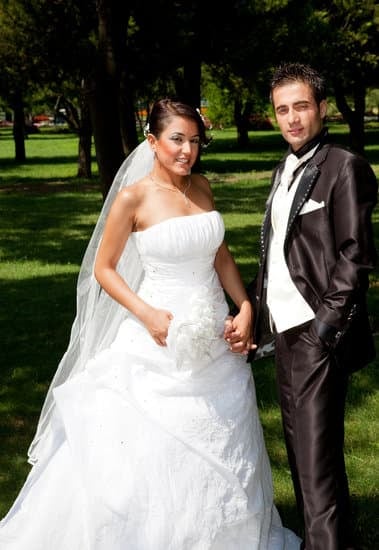How long does a typical wedding ceremony last? The duration of a wedding ceremony can vary widely depending on a variety of factors, from cultural traditions to religious customs.
Understanding the significance of the wedding ceremony is crucial in determining the length that best suits you and your partner’s preferences. In this article, we will explore the typical length of wedding ceremonies in different cultures, factors affecting ceremony duration, and tips on customizing your ceremony length to make it uniquely yours.
The wedding ceremony holds immense significance as it marks the beginning of a lifelong commitment between two individuals. It is a time where vows are exchanged, promises are made, and love is celebrated. Whether it’s a traditional, religious, or civil ceremony, the event symbolizes the union of two people and their families. The length of this momentous occasion often reflects its significance and can vary based on different cultural and religious practices.
Throughout this article, we will delve into various aspects related to the duration of wedding ceremonies. We will explore how traditional wedding ceremonies differ in length across different cultures and how religious ceremonies have their own unique time frames.
Additionally, we will discuss factors that influence the length of a ceremony and offer insights on how couples can personalize their own ceremony to make it truly special. Whether you’re planning your own wedding or simply curious about this important event, understanding the significance and timing of a wedding ceremony is essential.
Traditional Wedding Ceremonies
When it comes to traditional wedding ceremonies, the length can vary significantly from one culture to another. In some cultures, a wedding ceremony may be relatively short and concise, while in others it can be a much more elaborate and lengthy affair. Understanding the typical length of wedding ceremonies in different cultures can provide valuable insight for couples as they plan their own special day.
Eastern Cultures
In many Eastern cultures such as Hindu, Chinese, or Japanese, wedding ceremonies tend to be rich in tradition and can last for several hours. These ceremonies often include multiple rituals, prayers, and symbolic gestures that are deeply rooted in the culture’s customs and beliefs. For example, a traditional Hindu wedding ceremony known as “Vivaah Sanskar” can last anywhere from one to three hours, depending on the specific traditions observed by the couple.
Western Cultures
In contrast, traditional Western wedding ceremonies are typically shorter in duration compared to those in Eastern cultures. A typical Christian wedding ceremony in the United States or Europe may last between 30 minutes to an hour, with variations depending on the specific religious denomination and customs of the couple. The exchange of vows and rings, readings, prayers, and any additional rituals contribute to the overall length of the ceremony.
African Cultures
In various African cultures such as Yoruba or Maasai, wedding ceremonies are often festive events filled with vibrant music, dance, and intricate marriage customs. The duration of these ceremonies can range from a few hours to an entire day or more. Traditional African weddings are characterized by lively celebrations that reflect deep cultural significance and community involvement.
Understanding the typical length of traditional wedding ceremonies in different cultures is important for couples who want to incorporate elements from their heritage into their own wedding celebration. By appreciating these cultural differences, couples can customize their ceremony length accordingly while honoring their roots and traditions.
Factors Affecting Ceremony Length
When it comes to planning a wedding, one of the most common questions that arise is: how long does a typical wedding ceremony last? The truth is, the length of a wedding ceremony can vary greatly depending on a number of factors. From cultural traditions to religious customs, and even personal preferences, there are many elements that can impact the duration of a wedding ceremony.
One of the primary factors that can affect the length of a wedding ceremony is the type of ceremony being performed. For example, traditional religious ceremonies such as Catholic weddings or Hindu weddings often have specific rituals and rites that can extend the overall duration of the ceremony. On the other hand, civil ceremonies tend to be shorter and more straightforward in terms of structure and content.
Another factor that can influence the length of a wedding ceremony is the level of customization and personalization that the couple opts for. Couples who choose to include personalized vows, readings, or special rituals in their ceremony may find that these elements add to the overall duration. Likewise, some couples may opt for a more streamlined and concise ceremony by omitting certain traditional aspects or rituals.
Furthermore, external factors such as venue restrictions or time constraints can also play a significant role in determining the length of a wedding ceremony. For instance, if a couple has booked a venue with strict time limitations, they may need to carefully plan and manage their ceremony in order to stay within the allotted timeframe.
| Factors Affecting Ceremony Length | Impact |
|---|---|
| Type of Ceremony | Different types of ceremonies have different lengths based on their traditions and customs |
| Customization | The level of personalization added by couples can extend or shorten the duration |
| External Factors | Venue restrictions or time constraints can also play significant roles |
Religious Ceremonies
When it comes to religious wedding ceremonies, the duration can vary greatly depending on the specific religious traditions and customs involved. Below are some typical time frames for various religious wedding ceremonies:
- Christian Ceremonies: A traditional Christian wedding ceremony typically lasts between 30 minutes to an hour. This includes various components such as the processional, readings, vows, exchange of rings, and the pronouncement of marriage.
- Jewish Ceremonies: A Jewish wedding ceremony, known as a “Chuppah,” can last around 25 to 45 minutes. It involves rituals such as the signing of the Ketubah (marriage contract), the circling of the bride, and the breaking of glass.
- Hindu Ceremonies: Hindu weddings are known for their rich cultural traditions and can range from 1 to 3 hours in length. The ceremony includes rituals like Kanyadaan (giving away of the bride), Mangalpheras (circling around sacred fire), and Saptapadi (seven steps around fire).
It’s important for couples planning a religious wedding ceremony to consult with their officiant or religious leader to understand the specific timeline and requirements for their chosen faith. The length of a religious ceremony can also be influenced by additional customs or traditions observed within a particular community or family.
In addition, it’s advisable for couples to discuss their preferences with their officiant and explore opportunities to personalize certain aspects of the ceremony while still respecting the essential elements of their faith. Ultimately, understanding how long a typical religious wedding ceremony lasts can help couples plan their special day with greater insight and consideration for both tradition and personalization.
Civil Ceremonies
Civil wedding ceremonies are becoming increasingly popular as couples seek alternative and unique ways to tie the knot. These non-religious ceremonies offer flexibility in terms of location, format, and content. As such, the duration of a civil wedding ceremony can vary depending on the couple’s preferences and the requirements of their chosen officiant.
To give you a better understanding of how long a typical civil wedding ceremony lasts, here are some key factors that can affect its duration:
- Vows and Readings: The length of a civil ceremony can be influenced by the number of readings and personal vows included. Couples may choose to incorporate poems, love letters, or other meaningful passages into their ceremony, which can extend its duration.
- Legal Requirements: In some jurisdictions, there may be specific legal elements that must be included in a civil ceremony, such as the exchange of vows or signing the marriage license. These requirements can impact the overall length of the ceremony.
- Personalization: Couples have the freedom to personalize their civil ceremony by including rituals or traditions that hold significance for them. This customization can add time to the proceedings but allows for a more meaningful and memorable experience.
Couples planning a civil wedding ceremony should communicate with their officiant to discuss their preferences and expectations regarding timing. By collaborating with their chosen professional, they can work together to create a personalized and meaningful ceremony that reflects their unique love story while ensuring that it aligns with their desired duration.
Customizing Your Ceremony Length
When it comes to planning your wedding ceremony, one of the key elements to consider is how long the ceremony will last. The length of a typical wedding ceremony can vary widely depending on a number of factors, including cultural traditions, religious customs, and personal preferences.
As a couple, it’s important to understand the different elements that can impact the duration of your ceremony and how you can personalize the timing to create a meaningful and memorable experience for both you and your guests.
One of the first considerations when customizing the length of your wedding ceremony is to take into account any cultural or religious traditions that are important to you and your partner. For example, traditional Hindu wedding ceremonies can last several hours, while a civil ceremony at a courthouse may only take 15-20 minutes. Understanding these traditions and customs will help you determine the overall structure and duration of your ceremony.
Another factor that can impact the length of your wedding ceremony is the inclusion of various rituals and customs. Whether it’s lighting a unity candle, exchanging vows, or participating in a sand or wine ceremony, these elements all contribute to the overall timing of your ceremony. As you plan your special day, consider which rituals are most meaningful to you as a couple and how they will fit into the timeline of your ceremony.
Additionally, consider how you can personalize the timing of your wedding ceremony to reflect your own values and beliefs as a couple. Whether it’s incorporating personal vows, selecting readings or music that hold special meaning for you both, or even creating unique rituals that symbolize your love and commitment, there are countless ways to customize the timing of your wedding ceremony to make it truly reflective of who you are as individuals and as partners.
| Factors Affecting Ceremony Length | Impact on Ceremony Duration |
|---|---|
| Cultural Traditions | Vary widely by culture; Hindu weddings can last several hours while civil ceremonies may only take 15-20 minutes. |
| Rituals & Customs | Inclusion of various rituals such as unity candle lighting or sand ceremonies impacts overall timing. |
| Personalization | Customizing vows, readings, music, and unique rituals contributes to individualized timing. |
The Ideal Length
When it comes to the ideal length for a wedding ceremony, many couples and guests have varying opinions. Some people believe that a shorter ceremony is more fitting, while others feel that a longer, more elaborate ceremony is more appropriate for such a momentous occasion. Ultimately, the perfect duration for a wedding ceremony depends on several factors, including cultural background, religious beliefs, and personal preferences.
Cultural Background and Traditions
In some cultures, wedding ceremonies are meant to be grand and elaborate affairs that can last for several hours. For example, in Indian weddings, traditional Hindu ceremonies can go on for an entire day with numerous rituals and customs to be observed. On the other hand, in Western cultures, the typical length of a wedding ceremony is usually between 20 to 30 minutes. Understanding the cultural significance of weddings can help couples determine the ideal length for their own ceremony.
Religious Beliefs
Religious wedding ceremonies also play a significant role in determining the ideal duration of a wedding ceremony. For example, Catholic weddings often include a full mass which may extend the length of the ceremony to about an hour or more. On the other hand, Jewish ceremonies tend to be shorter in duration but may still include various rituals and blessings. It’s important for couples to consider their religious beliefs when deciding on the length of their wedding ceremony.
Personal Preferences
Ultimately, when it comes to determining the ideal length of a wedding ceremony, personal preferences should also be taken into account. Some couples may prefer a short and sweet ceremony that gets straight to the point, while others may want to incorporate various readings, musical performances, or personalized vows which may extend the duration of the ceremony.
It’s important for couples to communicate their preferences with each other and with their officiant to ensure that their wedding ceremony reflects their unique style and values.
Navigating Time Constraints
When planning a wedding ceremony, couples often face the challenge of managing the length of the ceremony to accommodate various schedules and preferences. With so many moving parts and important traditions to consider, it can be a daunting task to strike the right balance between making the ceremony memorable and keeping it from dragging on. However, there are several strategies that couples can implement to navigate time constraints and ensure that their ceremony is both meaningful and efficient.
One effective way to manage the length of a wedding ceremony is to carefully plan and organize the order of events. By creating a precise timeline and sticking to it, couples can avoid unnecessary delays and keep the proceedings running smoothly. Additionally, couples can consider streamlining certain aspects of the ceremony, such as readings or musical performances, to minimize any potential time overruns.
Another approach to managing time constraints is to communicate openly with key participants, such as officiants, readers, and musicians. By setting clear expectations regarding timing and roles, couples can ensure that everyone involved understands the importance of staying on schedule. This open dialogue can also provide an opportunity for individuals to voice any concerns or suggestions for improving the flow of the ceremony.
Lastly, couples may need to make some difficult decisions about what elements they truly want to include in their ceremony in order to manage time constraints effectively. By prioritizing their must-have components and being willing to forego certain traditions or rituals that are less important to them, couples can create a more streamlined and focused ceremony experience.
Ultimately, it is important for couples to remember that while they may not be able to please everyone with every decision made about their wedding ceremony’s duration, prioritizing what matters most will result in a more authentic and meaningful celebration.
Closing Thoughts
In conclusion, the duration of a typical wedding ceremony can vary greatly depending on cultural, religious, and personal preferences. Traditional wedding ceremonies in different cultures can range from a few minutes to several hours, while civil ceremonies tend to be shorter in length. Factors such as rituals, readings, and music also play a significant role in determining how long a ceremony will last.
When planning your wedding ceremony, it’s important to consider the significance of each element and how it aligns with your values and beliefs. Whether you opt for a religious or civil ceremony, customizing the length to suit your preferences is key. Some couples may prefer a shorter, more intimate ceremony while others may want a longer, more elaborate affair.
Ultimately, there is no one-size-fits-all answer to the question of how long a wedding ceremony should last. The ideal length is truly subjective and depends entirely on what feels right for you as a couple. By working closely with your officiant or celebrant and carefully considering the elements that are most meaningful to you both, you can create a ceremony that perfectly reflects your love and commitment to one another.
Frequently Asked Questions
Is 10 Minutes Too Short for a Wedding Ceremony?
10 minutes may feel too short for a wedding ceremony for some people, especially if they have envisioned a longer, more traditional ceremony. However, for others, a short and sweet 10-minute ceremony may be just perfect.
What Is the 30 5 Minute Rule for Weddings?
The 30-5 minute rule for weddings suggests that the entire ceremony should not last longer than 30 minutes, while no part of the reception should go over 5 minutes. This rule aims to keep the overall flow of the wedding running smoothly and on time.
Is a 15 Minute Wedding Ceremony Too Short?
Whether a 15-minute wedding ceremony is too short depends on the preferences of the couple getting married. For some, this may be just enough time to exchange vows and rings, while for others it might feel rushed or incomplete.

I have been involved in marriages for over 20 years helping couples and singles understand more about them.





